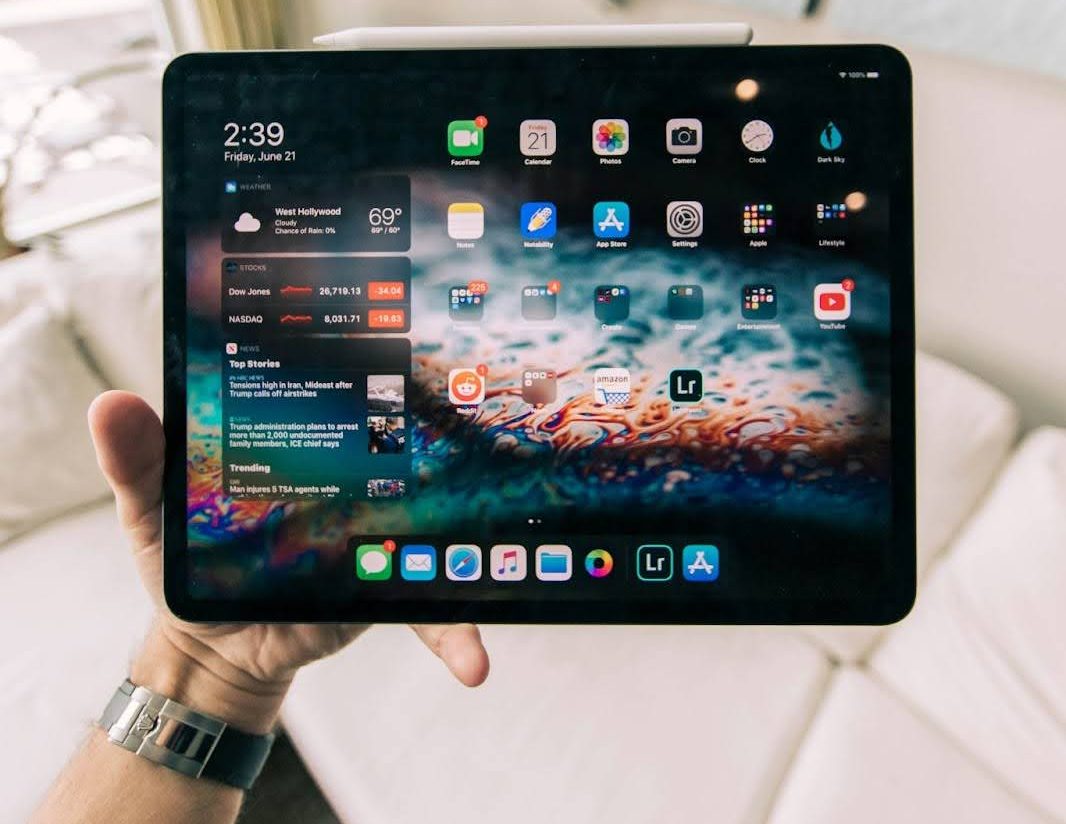Reducing Screen Time : Balancing Technology and Life

Ping. Ping. Ping.
As the notifications flood in, it’s tempting to take a quick peek. Before you know it, you find yourself mindlessly scrolling through Instagram while also chatting away in your many group chats. And sending your BeReal photo.
It’s a scenario that’s all too familiar in today’s fast paced world, where screens have become an integral part of our daily routines.
Whether you’re responding to emails from your boss, binge-watching the latest Disney Plus series, or scrolling through social media, screens are always at our fingertips.
And you think to yourself how do you reduce your screen time?
As you are aware – excessive screen time can have a number of negative impacts on your physical, mental and emotional health.
And you’re right.
Detailed studies have found that it can lead to higher risks of obesity, diabetes, and cardiovascular disease. Plus, it can also cause some eye strain, those annoying migraines and blurred vision. And to top it off it also increases mental health problems, such as anxiety and depression.
So the question is – how do you reduce your screen time?
Well, we are here to help you.
We’ll explore how to reduce your screen time, talk about why it’s essential to reduce your screen time and give you some tips to help you get started.
Understanding Screen Time
In today’s digital age, screen time refers to the amount of time someone spends in front of electronic devices such as smartphones, tablets, laptops and video games.
It can include both leisure or work-related activities.
We have reached a point where we don’t think anymore, we function on autopilot. Our cognitive abilities (thinking, reading, learning, remembering, reasoning and paying attention) are declining.
Research advocates that kids aged 5 to 18 years should spend no more than two hours in front of a screen.
But, in a world dominated by technology, is this time limit possible to uphold?
Think about it, when was the last time you sat in silence?
The Benefits Of Reducing Screen Time
Image Source : Myles Tan on Unsplash
One of the most important things we can do for ourselves is to focus on our health and well-being. With a good chunk of our lives spent in front of screens, it can be easy to forget the value of self-care.
And reducing screen time has many valuable benefits
- Physical Health
Reducing screen time can significantly improve your physical health. Spending too much time glued to your screen could lead to a sedentary lifestyle. This could result in weight gain, muscle weakness, poor posture and a host of other health problems.
Regular screen breaks, especially during work hours such as a quick walk around the block – can help you stay active, improve blood circulation, and lower the chances of developing health issues.
- Mental Health
Excessive screen time can also have a negative impact on your mental health. Social media for instance has a way of making people feel less than adequate. It is funny how apps that were created to connect people make people feel less connected. And let us talk about the anxiety it creates.
Binging on videos leads to a lack of sleep, which in turn leads to a terrible morning, which leads to spiraling into anxiety and depression.
When we reduce our digital consumption, we open ourselves up to more opportunities to connect with our friends and family. Engaging in activities that bring us joy, results in better mental health.
- Children’s Health
Research has proven that too much time spent in front of screens can affect a child’s development. This includes language skills, social skills and cognitive ability. Moreover, excessive screen time could lead to obesity, poor sleep and an increase in aggressive behavior.
So it’s important to make sure children don’t spend too much time in front of screens. Instead encourage them to engage in age-appropriate activities such as reading, playing outside and socializing.
Photo by Kelly Sikkema on Unsplash
Impact of screen time on sleep quality
Sleep is the holy grail for better health.
This is an important topic to discuss since we all love scrolling through our phones or watching TV before bed. But did you know that it could affect the quality of our sleep?
It can have several negative effects on your sleep quality.
Electronic devices such as your smartphone emit blue light. This light can affect the production of melatonin, a hormone responsible for regulating sleep. This can lead to difficulty falling asleep, restless nights and poor sleep quality.
It affects how well we sleep because it exposes our brains to cognitive stimulation. This can increase alertness and make it harder to fall asleep. We suddenly might feel more tense and have trouble relaxing when we should be unwinding.
To improve sleep quality, it is recommended to limit screen time before bed or even consider implementing a screen-free bedtime routine. This could involve reading a book, taking a bath or practicing meditation.
Other tips could be using blue light filter glasses, decreasing the brightness and turning off devices at least an hour before bed (some go as far as activating Do Not Disturb to avoid being tempted).
Tips to get started on reducing digital distractions
At first, limiting screen time may seem daunting. But you can do it with a few simple changes in your daily routine.
Here are some tips to get you started:
- Set a goal
Start by setting a realistic goal for reducing screen time. Decide how much time you want to spend on screens each day. And stick to that goal.
You can use apps to track your time and keep yourself accountable.
Start small. Cut 15 minutes instead of going all in for 2 hours.
- Take breaks
Take frequent breaks from screens, especially if you use them for work. Apps like pomodoro can help you take a break every 25 minutes. Looking away for 20 seconds can help prevent eye strain and reduce fatigue.
Use this time to do a yoga pose, or shake a leg to Harry Styles. Or make a peanut butter sandwich. Do something that doesn’t require a screen.
- Establish no-screen zones
Arianna Huffington discusses the concept of establishing no-screen zones in her book The Sleep Revolution.
Create no-screen zones in your home, where screens are not allowed. This could mean no screen in your bedroom, during meals (even at the In & Out Burger drive-thru), or during family time. Encourage your family members to join in and make it a habit.
Create a swear jar but for screen time.
- Engage in other activities
Fill your free time with activities that do not involve screens. Implementing healthy habits can be an effective strategy to reduce your screen time.
Try your hand at attending meetups (it could be about data science, AI or philosophy). Or try some of Flynn McGarry’s recipes. Or go on a group hike. There is so much to do if you don’t like to read, dance or paint.
Engaging in physical activities or hobbies that do not involve electronic devices can help reduce stress and improve your mood.
Image Source: cottonbro studio
- Go on a digital diet
In today’s technology-driven world, it is important to limit the amount of time we spend looking at screens. Doing so is essential to staying healthy. Fortunately, technology can also provide you with tools to help.
A great way to start reducing digital distractions is to start tracking it. For example, on an Android the Digital Well-Being app or iPhone the Screen Time features allows users to see their usage. Additionally, there are apps like FREEDOM, which allow you to block social media apps or websites that might tempt you (read our article on how to do a social media detox).
You can use Locked Mode on the Freedom app to take things further. This mode prevents you from disabling the app until you’ve finished that school paper due tomorrow or spending time kicking the ball around with your kids.
- Be mindful
Lastly, be mindful of your screen time and its impact on your health. Keep a journal. Using a guided meditation podcast – The Daily Meditation Podcast is a great way to do a reset.
Sometimes just sitting outside with a cup of tea and staring at the sky will clear your mind.
Start small and you will soon realize that you can do without being glued to your screens all day.
Using Technology to Help Reduce Screen Time
Image Source: Freedom
In recent years there has been a variety of apps, tools and resources available to help individuals reduce their screen time and support healthy habits. One example is the Screen Time feature on Apple devices or Digital Well-being on Android. This feature allows users to track their device usage, set limits on certain apps, and even schedule downtime.
Other apps include Freedom, which blocks distracting websites and apps across all devices. Moment is another app that tracks screen time and sends notifications if you go over your set time limit.
Some apps, like Flipd and Forest, use gamification techniques to encourage users to stay off their phones and engage in other activities.
In addition to apps, there are devices such as the Light Phone, a minimalist phone with limited features designed to help users disconnect from technology.
These tools can bring more awareness of your screen time habits. Help you better understand your relationship with technology. Make more intentional choices about how and when you use it. You may experience some withdrawals initially, but over time it will be easy.
After all, don’t you want less anxiety and stress?
But, it’s important to remember that these are just tools. Ultimately, reducing your screen time requires a commitment to making a lifestyle change. A commitment from you to developing new habits.
To recap, spending too much time in front of a screen can have a negative impact on your health. Taking small steps like being mindful, taking breaks and creating no-screen zones can make a big difference to your mental health.
Let us know in the comments, if you have tried a digital detox or controlled your screen time.
How has it helped you?
What interesting things have you learned?
What features do you wish you had?
If you’d like help with limiting your smartphone use, Freedom can help. Our app makes it easy for you to make a change in your life. And our built-in Chrome extensions help keep you focused. Give it a try.
Written by Arlene Texeira


